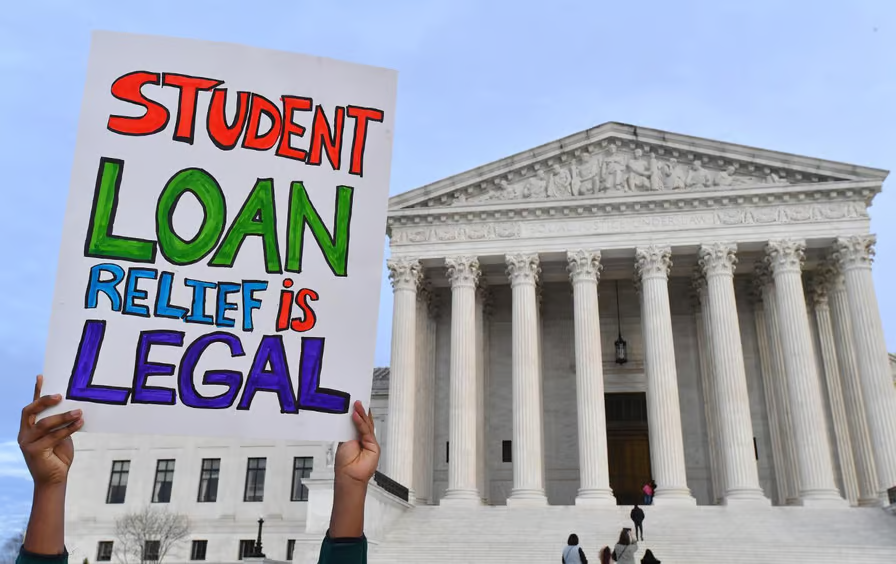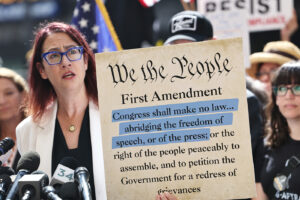February 28, 2023
The Student Debt Cancellation Movement Is About to Face Its Toughest Fight Yet
By Lisa Herforth-Hebbert
On February 28, advocates for student debt relief will rally outside the Supreme Court as the oral arguments for Biden v. Nebraska and Department of Education. v. Brown begin.
By Natalia Abrams and Cody Hounanian

Last year, President Joe Biden used his authority—as defined by the HEROES Act of 2003—to cancel up to $20,000 in federal student loan debt per borrower. The executive action was taken in response to the lingering health and economic impacts caused by Covid-19, and would help families and borrowers recover while closing racial disparities that widened during the pandemic. Right now, Americans owe nearly $1.8 trillion in student loan debt. On February 28, the Supreme Court will begin hearing oral arguments for two cases challenging this plan, Biden v. Nebraska and Department of Education v. Brown.
Let’s be clear: President Biden’s relief plan is legal and supported by 22 state attorneys general and dozens of legal experts. Research shows that student debt harms working- and middle-class families, prevents homeownership, delays family formation, and adds additional stress to families struggling to shoulder the impacts of the pandemic and inflation. Freeing Americans from the shackles of debt would put hundreds of dollars back into the pockets of families, grow the GDP by billions of dollars, and even add jobs to the economy.
But despite the obvious benefits of President Biden’s plan, these two Supreme Court cases—one led by an organization tied to the billionaire founder of Home Depot and the other by partisan state officials—are a serious threat to student debt relief. If the challenges are successful and the court blocks the president’s student debt cancellation plan, the crisis will continue to burden millions of Americans.


